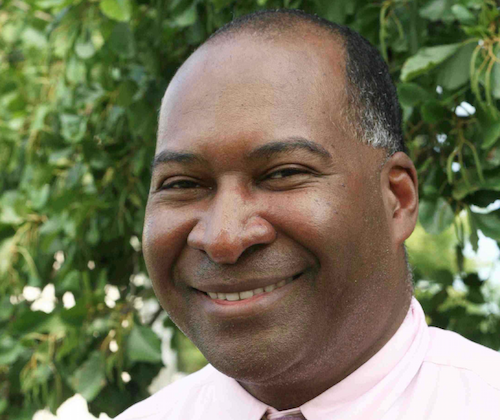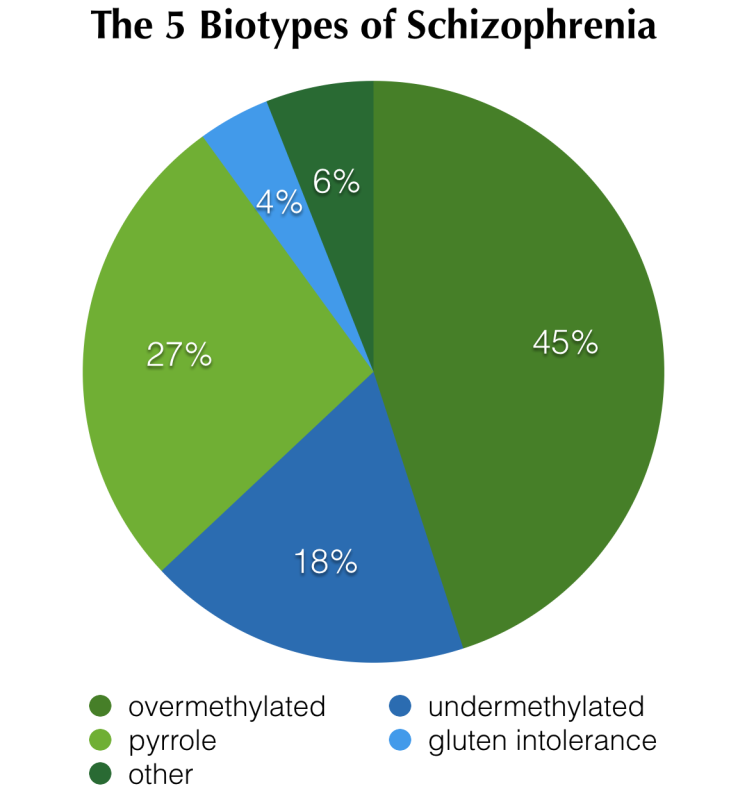Natural healing for schizophrenia is possible when the patient’s biochemistry reveals underlying conditions producing the disorder. Schizophrenia is a breakdown in a person’s ability to think, feel, and behave with reason, and can be caused by genetic or epigenetic factors. Patients with schizophrenia may suffer from hallucinations, delusions, and faulty perceptions. They tend to have inappropriate thoughts, behaviors, and will often withdraw from reality, and relationships with others into an isolated fantasy world full of delusion and mental fragmentation.
A significant number of patients diagnosed with schizophrenia have low histamine levels in the blood. We treat patients with schizophrenia by careful evaluation of symptoms and biochemical lab testing. As their biochemistry stabilizes and normalizes their symptoms improve. Patients with schizophrenia often have high copper levels, as copper lowers histamine in the body. Excess copper is also known to cause psychosis.
A significant number of individuals who come to Mensah Medical have been diagnosed with schizophrenia or schizoaffective disorder. This type of a mental illness usually appears in late adolescence or early adulthood, but it can strike at any time in life. The signs and symptoms vary from person to person, but many people with the disorder report experiencing delusions or hallucinations. They report hearing voices, as well as seeing, smelling, tasting and feeling things that are not there. Many also have very inappropriate or strange behaviors, disorganized speech, decreased motivation or interest, and can appear emotionless.
Chemical Biotype Key To Natural Healing for Schizophrenia
In mainstream psychiatry, schizophrenia is an umbrella term given to several different mental disorders. It’s considered a devastating diagnosis and natural healing for schizophrenia is often considered impossible. In his research, William J. Walsh, PhD, of the Walsh Research Institute, discovered that persons diagnosed with schizophrenia fall into five different biotypes, the most common being overmethylated schizophrenia, which includes nearly half of all cases. Pyrrole disorder schizophrenia occurs in 27% of cases, and undermethylated schizophrenia occurs in about 18% of the population. Although rare, wheat and gluten intolerance can cause schizophrenia in some cases.
These biotypes represent very different disorders, each with unique neurotransmitter imbalances and symptoms. The Walsh Theory of Schizophrenia proves that most cases of schizophrenia involve abnormal methylation or oxidative overload. Natural healing for schizophrenia is possible when body chemistry is stabilized and normalized through targeted advanced nutrient therapy.
Since psychiatric medications are quite powerful and often come with unpleasant or even permanent side effects, it is important for families of individuals diagnosed with schizophrenia to consider Targeted Advanced Nutrient Therapy. Unlike psychiatric medicine which treats the symptoms of the condition, individualized and targeted advanced nutrient therapy works toward healing by correcting the imbalance that is often at the root cause of the disorder. Many recovered Mensah Medical patients with schizophrenia live normal productive lives while continuing nutrient therapy. Some may still require a minimal dose of traditional medication in addition to nutrient therapy. This allows Mensah Medical patients to function with fewer side effects.
Albert Mensah, MD
 As a physician in this specialized field since 2005, Dr. Mensah, board certified in integrative pediatrics by the American Association of Integrative Medicine, has treated over 3,000 patients with advanced targeted nutrient therapy. He serves on the board at Walsh Research Institute and serves as a clinical instructor for WRI’s international doctor training programs around the world. Dr. Albert Mensah received his undergraduate degree from Northwestern University (Evanston, Illinois) and his medical degree from Finch University of Health Sciences-Chicago Medical School. Dr. Mensah’s residency was in Family Medicine at Swedish Covenant Hospital (Chicago). Following residency, he completed additional fellowship training in academic development at JHS Cook County Hospital (Chicago). From 2005 to 2008, Dr. Mensah treated patients at the former Pfeiffer Treatment Center, a not-for-profit organization and outpatient clinic specializing in the treatment of biochemical imbalances including children with autism. Prior to joining Pfeiffer, Dr. Mensah was a physician at Melrose Park Clinic in Illinois. Dr. Mensah co-founded Mensah Medical in 2008 with Dr. Judith Bowman.
As a physician in this specialized field since 2005, Dr. Mensah, board certified in integrative pediatrics by the American Association of Integrative Medicine, has treated over 3,000 patients with advanced targeted nutrient therapy. He serves on the board at Walsh Research Institute and serves as a clinical instructor for WRI’s international doctor training programs around the world. Dr. Albert Mensah received his undergraduate degree from Northwestern University (Evanston, Illinois) and his medical degree from Finch University of Health Sciences-Chicago Medical School. Dr. Mensah’s residency was in Family Medicine at Swedish Covenant Hospital (Chicago). Following residency, he completed additional fellowship training in academic development at JHS Cook County Hospital (Chicago). From 2005 to 2008, Dr. Mensah treated patients at the former Pfeiffer Treatment Center, a not-for-profit organization and outpatient clinic specializing in the treatment of biochemical imbalances including children with autism. Prior to joining Pfeiffer, Dr. Mensah was a physician at Melrose Park Clinic in Illinois. Dr. Mensah co-founded Mensah Medical in 2008 with Dr. Judith Bowman.

